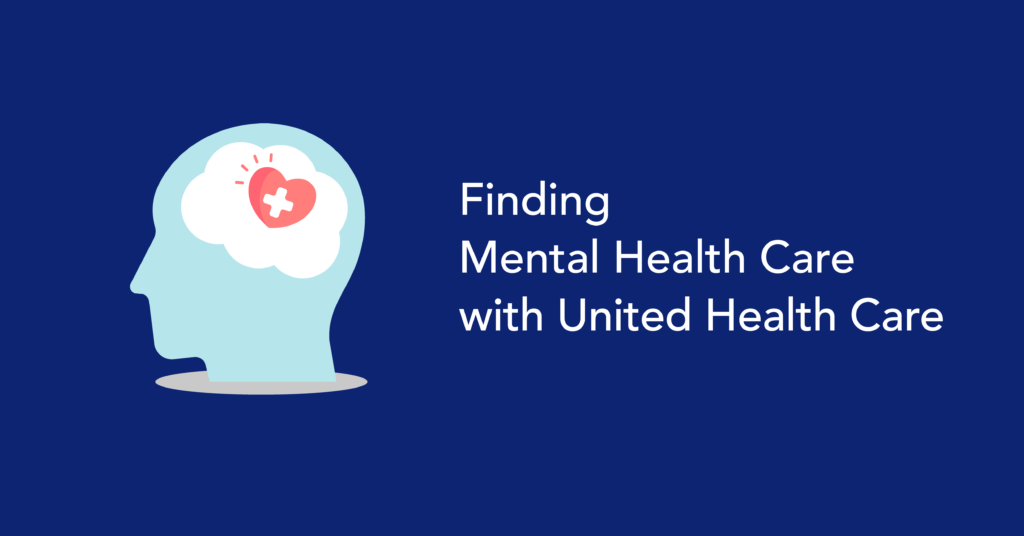Millions of Americans rely on UnitedHealthcare (UHC) for health coverage — but even with insurance, accessing mental health care can be confusing. While UHC covers therapy, psychiatry and behavioral health services under most plans, finding the right provider and understanding your benefits requires some extra steps.
Here’s what you need to know to use your UnitedHealthcare mental health coverage effectively.
Does UnitedHealthcare Cover Mental Health Services?
Yes, most UHC plans include coverage for mental health and substance use disorder treatment. This includes services like:
- Individual and group therapy
- Psychiatry and medication management
- Inpatient or outpatient rehab
- Telehealth behavioral services
Thanks to the Affordable Care Act, all marketplace insurance plans — including those from UHC — must cover behavioral health care at parity with physical health services. That means your plan can’t make it harder to get therapy than it is to see a primary care doctor.
Coverage details, however, depend on your specific plan type, such as:
- Employer-sponsored insurance
- Individual marketplace plans
- Medicaid/Medicare through UHC
How to Check Your UHC Mental Health Benefits
You have several options for checking your UnitedHealthcare mental health coverage.
1. Review Your Plan Documents
Your Summary of Benefits should include information about:
-
- Co-pays for therapy or psychiatry
- Deductibles for outpatient care
- In-network and out-of-network differences
2. Use the UHC Member Portal
Log in at myuhc.com to:
-
- View your benefits
- Check provider networks
- Track claims and deductibles
3. Call Member Services
Use the number on the back of your insurance card to get help with questions about coverage, claims or finding a provider.
Finding a Mental Health Provider With UHC
UnitedHealthcare offers an online provider search tool. Look for terms like:
- Behavioral health provider
- Mental health therapist
- Psychiatrist
- Substance use counselor
When searching, make sure the provider is in-network to avoid high out-of-pocket costs.
If you prefer support in navigating the system, you can also:
- Call the provider directly and ask if they accept your plan
- Use third-party mental health directories with insurance filters
- Contact the Mental Health Hotline for guidance
How Providers Verify Your Insurance
If you reach out to a mental health provider, they can verify your insurance for you. This process includes:
- Confirming your coverage is active
- Checking if they’re in-network with your plan
- Reviewing your deductible and co-pay details
- Estimating what your out-of-pocket cost may be
Providers may ask for:
- Your insurance card
- Your group/member ID number
- Your plan’s customer service phone number
Key Terms: Deductibles, Co-Pays and Out-of-Pocket Maximums
- Deductible. This is the amount you must pay before your insurance begins covering care.
- Example: If your annual deductible is $3,000 and you’ve only paid $1,000 so far, you may need to cover $2,000 more before benefits fully kick in.
- Co-pay or coinsurance. This is the share of costs you’re responsible for after meeting your deductible.
- Example: If your plan covers 80% of therapy and you owe 20%, a $150 session may cost you $30.
- Out-of-pocket maximum. This is the most you’ll pay in a year for covered services. Once you reach it, UHC covers 100% of in-network care for the rest of the plan year.
How to Get Help Finding Covered Mental Health Care
Trying to find a therapist or rehab facility that takes your insurance can be frustrating — especially during a mental health crisis.
Here are three ways to simplify the process:
- Use UHC’s member portal or app. Search for in-network mental health providers based on specialty and location.
- Ask a provider to verify your coverage. Before scheduling, confirm they take your insurance and check your expected costs.
- Call the Mental Health Hotline. Our trained counselors can:
- Help you find UHC-covered therapists, psychiatrists or treatment centers
- Answer questions about insurance and access
- Connect you with local, affordable mental health services
Final Thoughts
Having health insurance doesn’t always mean accessing care is easy — especially for mental health. But if you’re covered by UnitedHealthcare, you do have options. Take the time to check your benefits and search for in-network providers, and don’t hesitate to ask for help navigating the system.
If you’re feeling overwhelmed or unsure where to turn, call the Mental Health Hotline. We’re here 24-7 to help you find the support you need.


